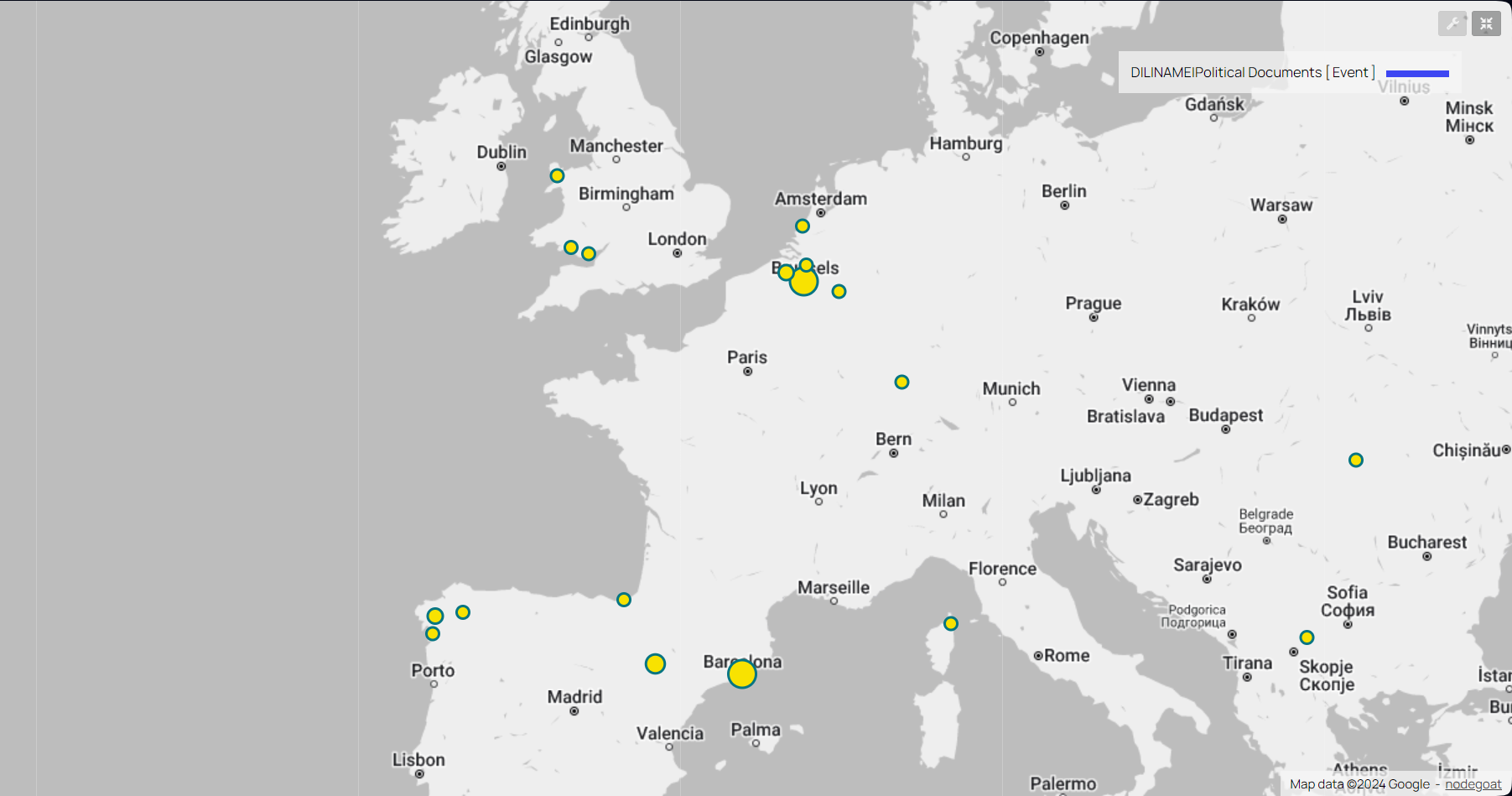In the very first volume of Studies on National Movements, Xabier Macías and Manoel Santos published a short article on a project that had recently been launched by the European-funded organization, the Coppieters Foundation. As Macías and Santos explained, the ‘Digital Library on National Movements in Europe’ (DILINAME in short), wanted to ‘[gather] and [provide] relevant documents, historical and current alike, relating to the creation of, evolution, ideas behind and contribution by socio-political proposals on the part of the movements of stateless nations’ that formed a part of the network of the Coppieters Foundation.
The goal of the DILINAME-project was, from its onset, twofold: on the one hand provide a general entry for a broad public to understand the historical and socio-political evolution of different (sub)national movements across Europe, whilst simultaneously, by gathering relevant historical sources of different national movements, encourage and facilitate (historical) comparative research. By combining these two goals, the project, as Macías and Santos stated, aimed to establish a ‘networked library’, forming a bridge between on the one hand members, institutions and historical sources of numerous (sub)national movements, and scholars interested in the study of nationalism and national movements on the other hand.

Unfortunately, despite its initial launch, the project has laid dormant until 2021, when NISE – because of the project’s emphasis on both comparative methodology and digital humanities – agreed to cooperate with the Coppieters Foundation to spearhead the project, relaunching and rebuilding the digital library.
Since its relaunch, the project has been divided into three separate phases to assist the construction of the digital ‘networked library’. The first phase consisted of a migration of the existing material that had been gathered to a new platform that could both facilitate the overall presentation of the material on the frontend, and induce a further exploration of the networks behind the publication of the socio-political sources on the backend. Consequently, it was decided to move the sources to the existing NISE platform ‘DIANE’ (Digital Infrastructure for the Analysis of National movements in Europe), with a slight modification of both the sources that are gathered – with more of an emphasis on historical socio-political documents related to national movements – and the data model to accommodate the possibility of future network analyses.
The second phase consisted in focusing on one case in particular to test the specifics of the data model and the sources relevant to the project, whilst simultaneously acting as a template for further cases to develop in the library. Because of its wide arrange and availability of historical sources, it was decided to use the case of the Flemish national movement as an alpha template to further develop the model and the project.
The project, spearheaded by Coppieters Foundation and developed by NISE, now aims to continue to expand its scope, ultimately constituting a quick-access overview for researchers and others alike, of different national movements across Europe and beyond. DILINAME was founded first of all as an outreach project, targeting the general public in order to raise awareness of the European national movements and to disseminate their history and activities. However, it is also aimed at the academic field as well as political foundations and various forums assisting with the comparative study, at least at an early stage, of pro-independence and nationalist democratic movements on a European level.